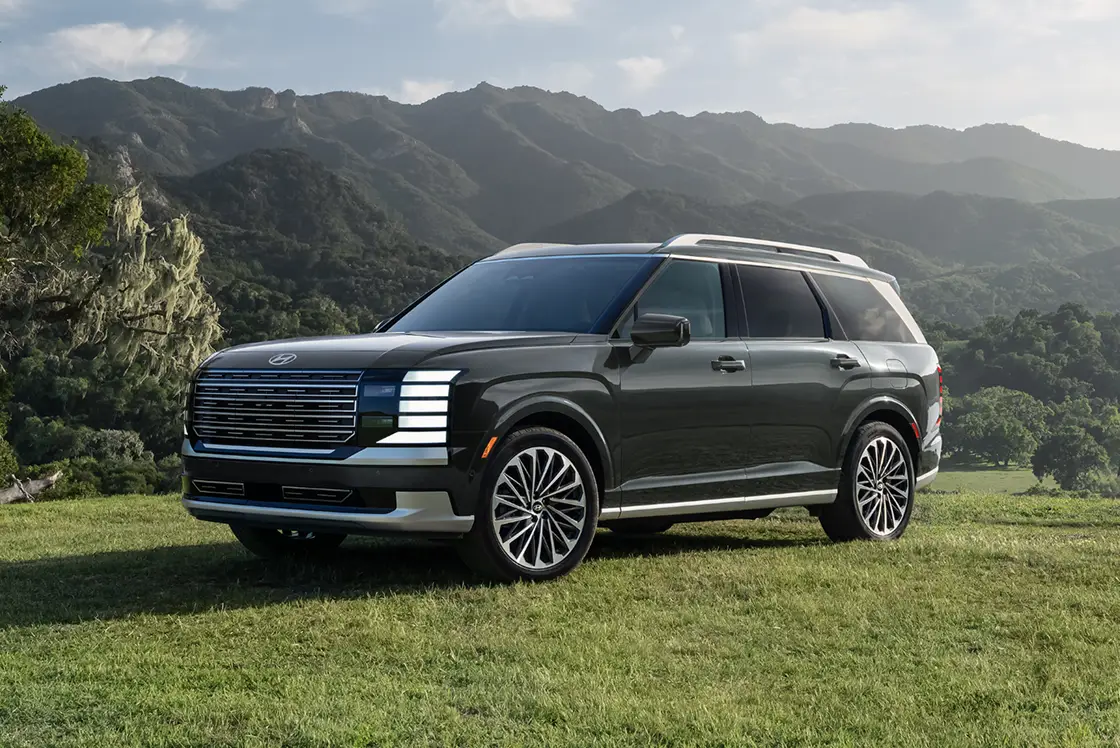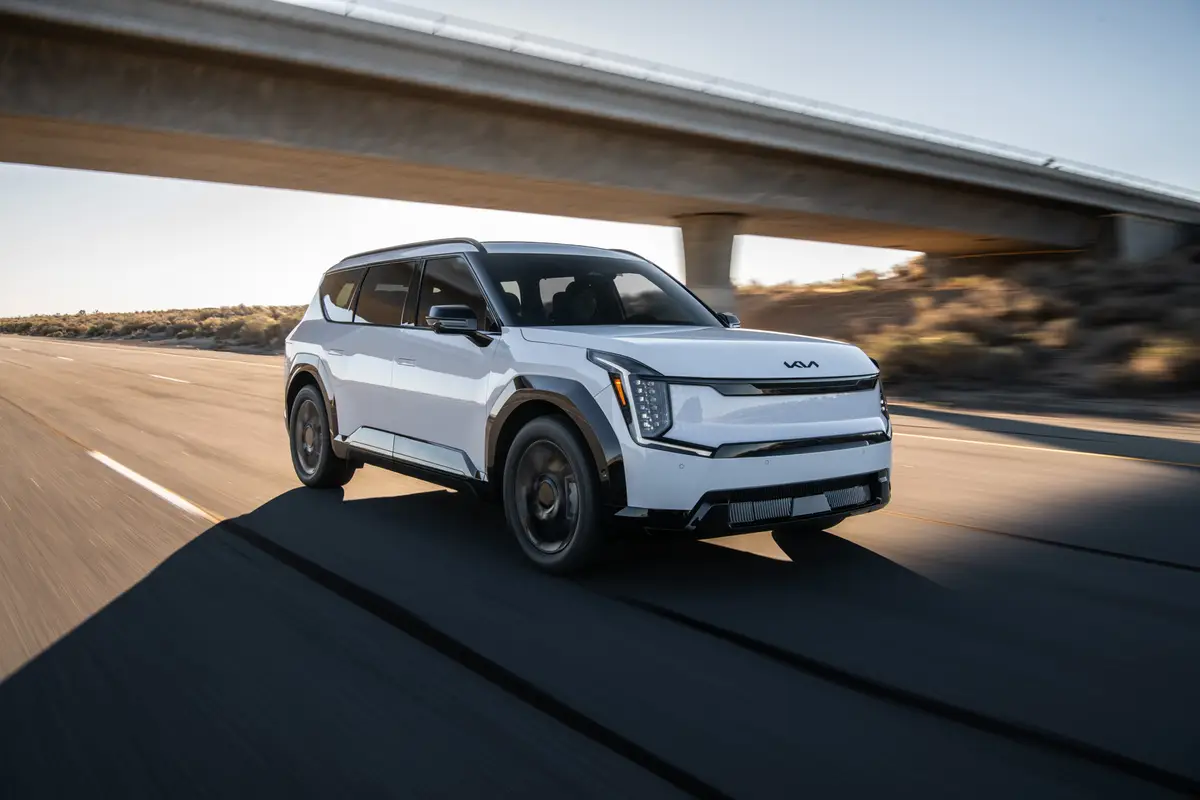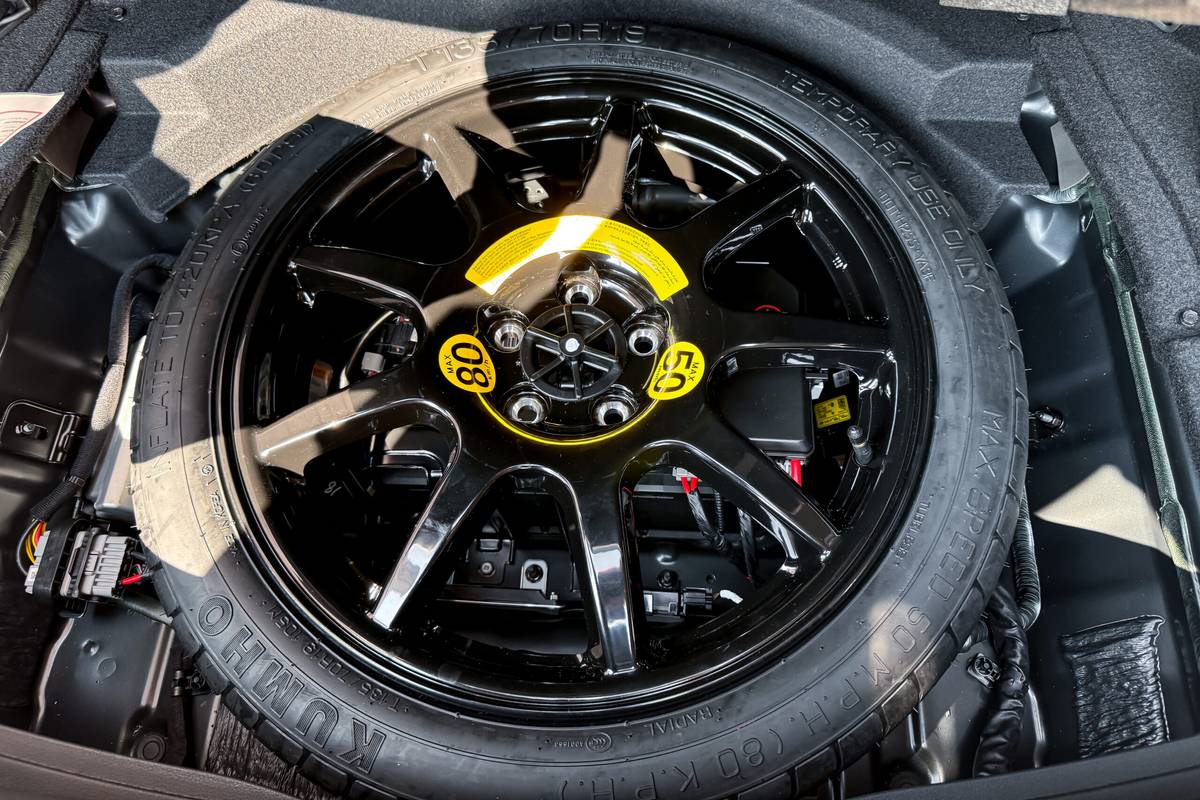How Are Automakers Responding to Trump’s Tariffs?

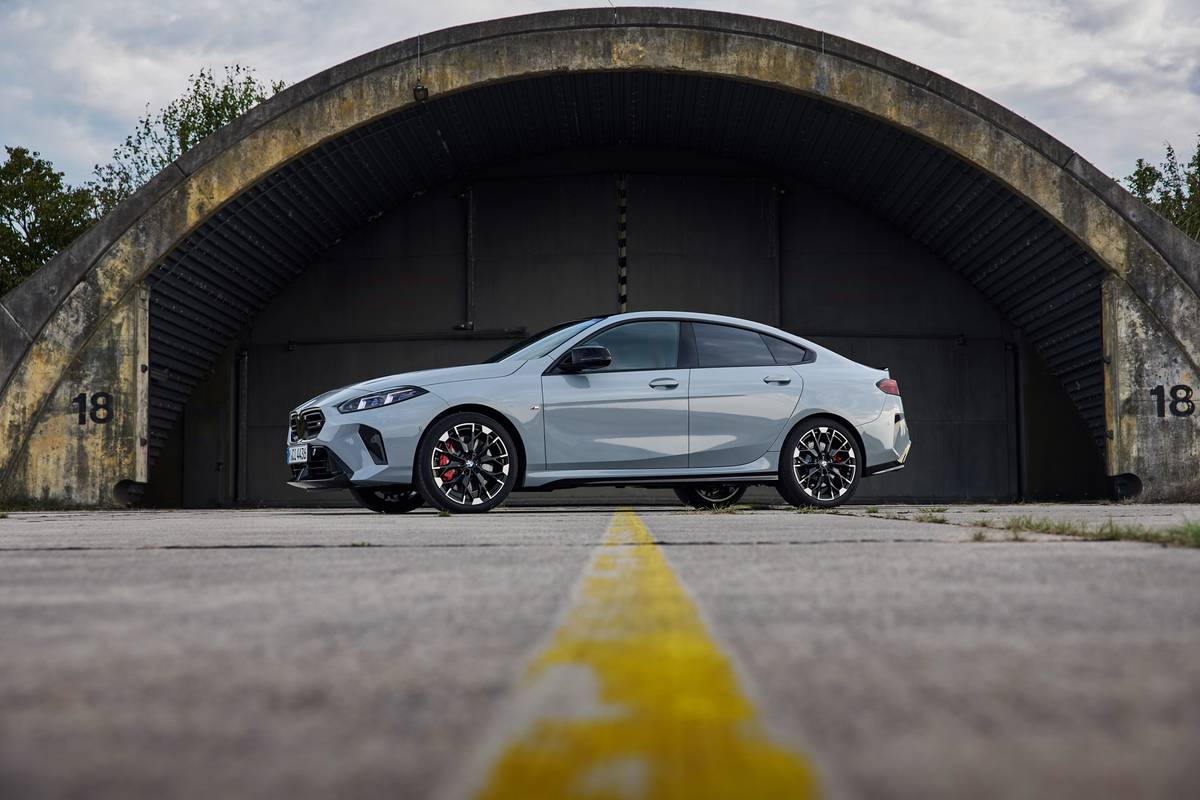
Editor’s note: This story was updated July 18, 2025, to include additional automaker responses.
Following the 25% tariff on all imported cars imposed by the Trump administration, it looks as though it will be an interesting ride to see how automakers react. We’re tracking the responses that automakers are having to the global tariffs to see exactly what actions they’re taking, as well as how car shoppers will be affected in the next few days, weeks and potentially months. Here’s what’s happened since the tariffs went into effect on April 3.
Related: Stay Up to Date on Tariff News
Aston Martin
Aston Martin plans to raise prices on some of its cars and is limiting shipments of its vehicles to the United States in light of Trump’s tariffs, focusing instead on selling its existing dealership inventory.
BMW Group (BMW, Mini, Rolls-Royce)
The German luxury carmaker initially told its dealers that it will absorb the cost of tariffs on its Mexican-made models in the U.S., but will now raise prices on the Mexican-built 2 Series (including the performance M2 variant) by 4% starting in May. What this means for the rest of the BMW showroom, however, is not yet certain. The company makes almost all of its SUVs in the U.S., but it still has a sizable portion of European-imported vehicles, as well as a considerable percentage of imported content for parts and components.
Mini, however, will be holding off on bringing its Chinese-built electric Aceman crossover and convertible Cooper to the U.S. for now. Both were scheduled to go on sale here in the next couple of years, but Mini confirmed to Automotive News that Trump’s increased tariffs on Chinese imports combined with soft demand were the reasons why those plans are now on hold.
Ferrari
If you have a Ferrari on order, congratulations! But also, here’s some bad news: The Italian sports-car maker will impose as much as a 10% bump in prices on most of its models, according to reports. The price bump is likely to also impact orders that were placed months ago. Ferrari sales contracts allow for the company to adjust pricing due to changing economic conditions — and those conditions almost certainly have been met.
Ford Motor Co. (Ford, Lincoln)
Getting ahead of the tariffs, Ford decided to offer up a sale that launched on April 3: The “Ford Motor Co.: From America, For America” sales campaign brings employee pricing for everyone. The promotion was originally set to end on June 2, but Ford extended it through July 6 amid continued uncertainty over the tariffs. The incentive can mean thousands of dollars off the price of a new Ford or Lincoln model. However, the deal doesn’t apply to certain vehicles, including anything with a Raptor badge (F-150, Bronco or Ranger), the new 2025 Super Duty pickup truck, or the redesigned 2025 Ford Expedition and Lincoln Navigator. Discounts vary by model, too, but that can mean anywhere from $1,300 off a new Maverick to $6,800 off a new F-150. The offer applies to either existing dealer inventory or new retail orders submitted by July 6. With more than 60 days of inventory on dealer lots when the 25% automotive tariff kicked in on April 3, Ford can afford to do this kind of sale to boost its numbers this year — but what the prices and availability will look like this summer now could be really interesting. If you want a new Ford or Lincoln, now is really the time to get one.
While Ford will keep its prices stable through June 2, it will raise prices on Mexican-built models produced after May 2, which are expected to arrive at dealerships in late June. These include the Bronco Sport, Maverick and Mustang Mach-E, some of which jumped in price by as much as $2,000.
Here are the tariff-related price raises Ford and Lincoln have implemented so far:
- May 2, 2025: Ford Bronco Sport, Maverick and Mustang Mach-E; Lincoln Nautilus
GM (Buick, Cadillac, Chevrolet, GMC)
The only news out of GM is a report that it will be increasing production of full-size pickups at its Fort Wayne, Ind., plant, resulting in the hire of 225-250 temporary workers to cover additional shift time. The plant makes the Chevrolet Silverado 1500 and GMC Sierra 1500 pickups but has the excess capacity to increase output. About half of GM’s pickups come from its Canadian and Mexican plants, but GM said that production at those locations is currently unaffected.
Honda Motor Co. (Acura, Honda)
Japanese automaker Honda confirmed it will move production of the Civic hybrid from Japan to the U.S. in response to new tariffs on imported cars. While the company initially said it did not plan to shift production away from its plants in Canada or Mexico, it announced May 13 that it would shift CR-V production from Canada to the U.S. to minimize the tariffs’ impact, as most CR-Vs built there are shipped to the U.S. Honda later claimed it would not cut jobs or decrease output in shifting CR-V production around, as production of non-U.S.-market CR-Vs would be shifting to Canada in return. Additionally, Honda put an $11 billion expansion of an Ontario manufacturing facility that was supposed to add more production for EVs and batteries on hold.
Hyundai Motor Co. (Genesis, Hyundai, Kia)
The South Korean brands, which import a significant portion of the vehicles they sell in the U.S., announced they would maintain current prices through June 2. However, Hyundai has not increased its 2025 model-year pricing since that deadline has passed, and it has sales and other incentives planned through the end of 2025 to keep inventory moving.
To get around the tariffs, Hyundai has shifted additional production of its Tucson SUVs from Mexico to its plant in Alabama. It has also launched a task force to study further ways it can ride out the current trade environment and increase parts sourcing in the U.S. In addition to shifting Tucson production, the automaker is considering moving some production of its U.S.-market South Korean-built cars to other facilities, as well. Additionally, the automaker claims it built up a stockpile of rare-earth metals used in electric vehicle manufacturing, allowing it to ride out changes in trade policies and export restrictions placed on the metals more comfortably.
Ineos
The British SUV and pickup startup makes its vehicles at a single plant in France and is therefore subject to the full impact of tariffs. As a result, Ineos has announced that it will be raising prices for both its vehicles, effective April 3. The Grenadier SUV will see a 4.9% increase in price, to $80,455 (all prices include destination fee), while the Quartermaster pickup (which is already subject to a longstanding 25% tariff on imported pickups) will see a price increase of 11%, to $94,500. The company said that orders placed prior to April 3 will not be subject to the price increases.
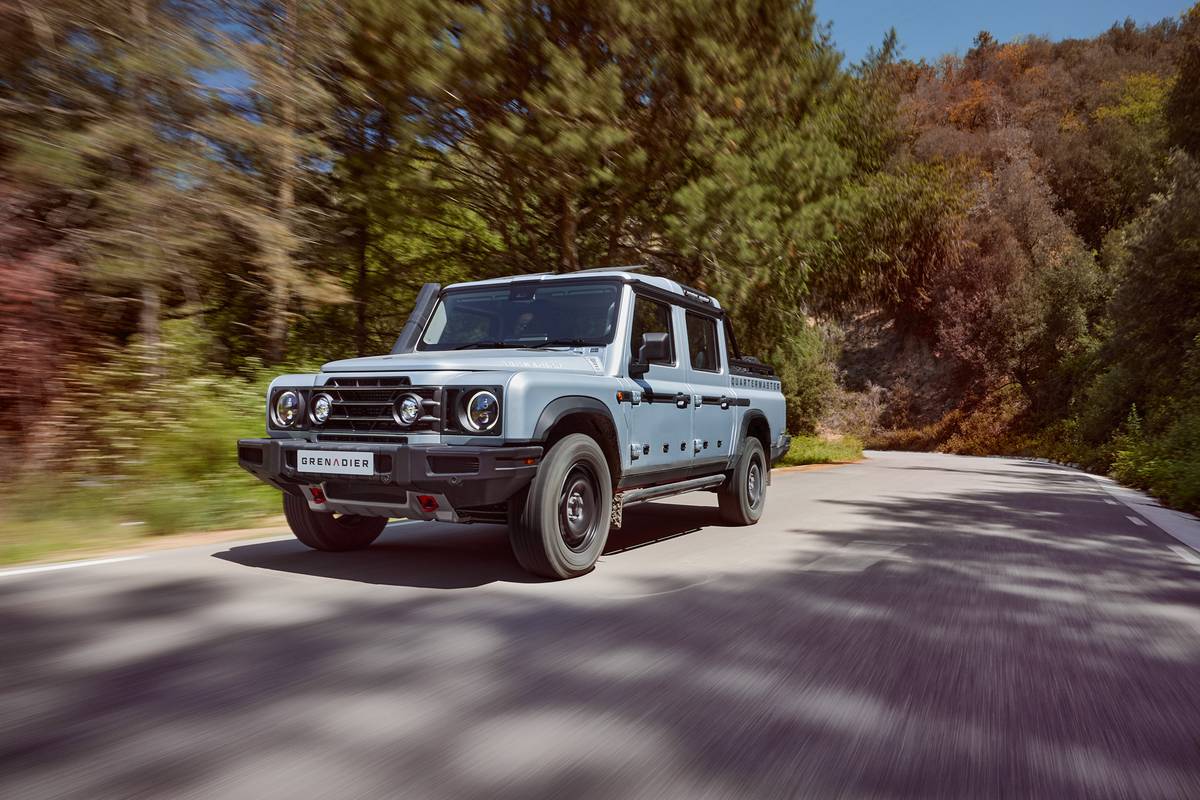
Jaguar Land Rover
The British automaker announced a pause on exports from the U.K. in April but has since restarted those shipments as of May. The automaker reportedly increased shipments prior to the announcement of tariffs, presumably to stock up on inventory in advance of the implementation on April 3. The company is developing a mid-to-long-term plan for how to navigate the new tariffs, which will be released alongside its full-year results May 10.
Lotus
Lotus paused shipments of its U.K.-built Emira on April 3 in response to the Trump administration’s blanket 25% tariff on imported vehicles. It also canceled U.S. sales of its Chinese-built Eletre SUV in the wake of an extremely high 250% tariff on Chinese-built EVs. Lotus plans to restart shipments of the Emira to the U.S. once the details of a U.S.-U.K trade deal are announced. It’s also considering other ways to make its Eletre and Emeya EVs feasible to sell in the U.S. market, including potentially using a U.S.-based plant to build the cars.
Mazda
Mazda’s method of dealing with tariffs is slightly different than those of the others on this list: It’s shifting its focus to increasing sales in its home market, Japan. Mazda is especially vulnerable to Trump’s new tariffs, with the CX-50 being its only U.S.-made vehicle. The company halted exports of the CX-50 to Canada May 12 to shore up its U.S.-made inventory in the U.S. and to avoid retaliatory trade measures Canada applied to U.S. imports.
Mercedes-Benz
The German luxury automaker has announced that it is currently planning to hold the line on prices for its 2025 models in response to tariffs. According to reports, the automaker is monitoring the situation and will adjust pricing as necessary in the future. A little over half of Mercedes-Benz’s U.S.-sold vehicles are imported, but its high-profit SUVs (the GLE, GLE Coupe, GLS, and electric EQE and EQS) are made at its Alabama assembly plant.
The company announced it will add production of the mid-size GLC SUV to its Alabama plant by 2027. Currently, the GLC is the bestselling imported model that Mercedes-Benz offers in the U.S. Mercedes will also expand production of its Sprinter van at its South Carolina manufacturing facility. Reports suggest the company is also considering ending sales of its imported entry-level models like the CLA sedan and GLA SUV due to tariff impacts on their profitability.
Mitsubishi Motors Corporation
Mitsubishi announced that it is raising its prices by an average of 2.1% in response to Trump’s 25% tariff on Japanese automotive imports. The new prices go into effect starting June 18. Mitsubishi had been holding its new vehicles at ports until the automaker had “additional visibility on tariffs and decisions made on next steps,” company spokesperson Jeremy Barnes confirmed to Automotive News. However, deliveries of new vehicles resumed in the second week of June.
The increased pricing will only apply to vehicles delivered after June 18 and not existing inventory on Mitsubishi lots. Prior to this, the company had kept its pricing steady since March and adjusted some promotions.
As Mitsubishi currently relies heavily on importing vehicles to the U.S., it’s considering leveraging its partnership with Nissan to produce some Mitsubishi models at Nissan’s U.S. factories. No further details have been released as to which models’ production lines may be shifted to the U.S.
Nissan Motor Co. (Infiniti, Nissan)
Nissan got in ahead of the tariff announcements by announcing price reductions for the popular Rogue and Pathfinder SUVs for the 2025 model year, effective April 1. Both vehicles are made in Tennessee (with some high-end Rogue trims imported from Japan) and are seeing strong sales numbers, but the changes in price allow Nissan to advertise starting prices under $30,000 for the Rogue and $40,000 for the Pathfinder, though the price reductions vary by trim level. Nissan also told its dealerships (and confirmed to Cars.com via email) that it would not raise prices on any of its imported vehicles until at least June 2 thanks to having nearly a three-month supply of tariff-free vehicles to sell as of April 21.
Additionally, Nissan plans to increase its U.S. production of Rogues by 56%, shifting more production away from tariff-vulnerable Japan. The automaker has been looking for ways to increase production at its underutilized plants in the U.S. in response to the tariffs and reportedly also is considering moving Sentra production from Mexico to the U.S. In the meantime, production of the five-speed manual base Versa was halted in response to the increased costs from tariffs and low demand.
At Nissan’s luxury brand, Infiniti, things are a little different: The brand has paused production of U.S.-bound, Mexico-built QX50 and QX55 SUVs until further notice and reportedly may not restart it, citing the vehicles’ unprofitability, according to Automotive News. Production of those models for export markets will continue, however. Those two vehicles comprise nearly a quarter of Infiniti sales in the U.S. The plant in question also makes the Mercedes-Benz GLB SUV, which reportedly only has another year left in its production life cycle, putting the future of the plant itself in question.
The automaker is also looking to move production of its flagship Armada and Infiniti QX80 SUVs to its Canton, Miss., assembly plant.
Rivian
Rivian reportedly stockpiled lithium iron phosphate battery cells from Chinese supplier Gotion High-Tech Co. ahead of the 2024 U.S. election. The automaker has also been working with Samsung SDI to move a large amount of its South Korean inventory to the U.S. to maintain a healthy supply for Rivian’s vehicles.
Stellantis (Alfa Romeo, Chrysler, Dodge, Fiat, Jeep, Maserati, Ram)
The automaker announced in April both layoffs as it halts production on some imported (and less than popular) models and sales incentives as it tries to bring down its on-hand inventory. Stellantis halted retooling and other prep work for the next-generation Jeep Compass at one of its Canadian plants Feb. 20 and is reevaluating its product plans for the model. Production of the Canada-made Dodge Charger EV and Chrysler Pacifica and Voyager minivans stopped for two weeks beginning April 7, while the Mexican-made Jeep Compass and Wagoneer S electric SUV was stopped from April 7 through the end of the month. This has resulted in the knock-on effect of laying off nearly 1,000 personnel at five American plants that supply components to those vehicles. Additionally, the base Dodge Charger Daytona R/T was canceled for 2026, most likely as a result of the uncertain tariff policies to import it from Canada. Production of the Italian-built Dodge Hornet was also postponed for the 2026 model year, according to Automotive News.
Simultaneously, Stellantis matched Ford in offering employee pricing for everyone on its inventory and announced the “America’s Freedom of Choice” program, which was initially set to run through April 30 but was subsequently extended through June 2.
Subaru
Subaru CEO Atsushi Osaki announced the company will continue developing its products in Japan but plans to minimize the impact of tariffs by expanding its production in the U.S. According to the company, nearly 80% of its revenue comes from North America, yet it could still face up to $2.5 billion in tariff costs despite roughly half of its North America-market vehicles being manufactured in Indiana if it doesn’t make any changes to mitigate the impact of the tariffs.
Toyota Motor Corp. (Lexus, Toyota)
Reports have indicated that Toyota plans on holding the line on pricing for now but is monitoring the situation as conditions change.
Volkswagen Group (Audi, Bentley, Lamborghini, Porsche, Volkswagen)
Volkswagen has told its dealers it will add an “import fee” line item to vehicle pricing on window stickers. Set to take effect after April 22, it will allow customers to actually see the impact of the Trump tariffs on the bottom line pricing. VW dealer inventory at the beginning of April was roughly 50 to 60 days, and vehicles allocated through April 7-8 are not impacted by tariffs, according to reports. VW has halted rail shipments from Mexico of the Jetta, Taos and Tiguan and has also reportedly halted ocean shipments at European ports. Details of these fees and the amounts they represent will be announced to dealers prior to the April 22 allocation.
In the meantime, Volkswagen kept its new-car pricing as-is through the end of May and extended that promise to keep its prices steady through June.
Volkswagen’s luxury brand Porsche shipped additional inventory to the U.S. ahead of the tariffs going into effect, but it denies reports that it is holding cars at port. A Porsche spokesperson told Cars.com in an email that the company shipped over 5,000 cars from its ports to the U.S. in April and that it offered support packages to customers who had placed orders when the tariffs were announced. Likewise, the company says it vows to work with customers who place new orders to ensure they get regular updates on how changing tariffs could affect their delivery.
Audi, which is owned by Volkswagen Group, has also said it is halting shipments of its products to the U.S. until it figures out a strategy to deal with the tariff situation. Aside from a small bump in price ahead of the A5 and S5 going on sale, an Audi representative confirmed to Cars.com that it will keep its pricing steady through the end of May. Additionally, the Lamborghini sports car brand, also owned by Volkswagen Group, has stated that it is not yet sure if it will hold the line or follow rival Ferrari’s move to increase prices in response to the tariffs. The Italian company has reportedly set up a specific task force to monitor the issue, involving a daily update conference to keep abreast of events.
Volvo Cars (Polestar, Volvo)
The first model casualty of the tariff fight is the Chinese-built S90 sedan, which will no longer be offered in the U.S. as of the 2026 model year. It follows the cancellation of the U.S.-built S60 and is as much a reflection of the slow demand for traditional sedans in the American market as it is a result of tariffs. The brand also announced it will not be offering the V60 wagon, which is manufactured in Europe, in the U.S. beginning with the 2026 model year. In addition to cutting the S90, Volvo confirmed that it will also cut incentives on current inventory and plans to use these savings to apply toward offsetting the effect of tariffs on future imports. The company said that it does not plan on adjusting any pricing just yet.
The Swedish automaker has a plant in South Carolina that also makes the Volvo EX90 and Polestar 3 SUVs, but it said in a report that it may add another model to its plant in order to try to mitigate tariff impact on pricing. In the meantime, Volvo plans to cut 5% of the plant’s workforce, in part due to changing trade policies. The company announced May 26 that it was also cutting 3,000 jobs globally in response to the uncertain environment surrounding tariffs and slower EV demand.
More From Cars.com:
- How ‘American’ Are the Bestselling Vehicles Made in the U.S.?
- 2025 Cars.com Affordability Report: Best Value New Cars
- Which Cars Are Made Outside the U.S.?
- How Trump’s 25% Tariffs on Automobiles, Automotive Parts Will Affect You
- If Tariffs Increase Car Prices, How Else Can You Save Money?
Related Video:
Cars.com’s Editorial department is your source for automotive news and reviews. In line with Cars.com’s long-standing ethics policy, editors and reviewers don’t accept gifts or free trips from automakers. The Editorial department is independent of Cars.com’s advertising, sales and sponsored content departments.

Detroit Bureau Chief Aaron Bragman has had over 25 years of experience in the auto industry as a journalist, analyst, purchasing agent and program manager. Bragman grew up around his father’s classic Triumph sports cars (which were all sold and gone when he turned 16, much to his frustration) and comes from a Detroit family where cars put food on tables as much as smiles on faces. Today, he’s a member of the Automotive Press Association and the Midwest Automotive Media Association. His pronouns are he/him, but his adjectives are fat/sassy.
Featured stories
